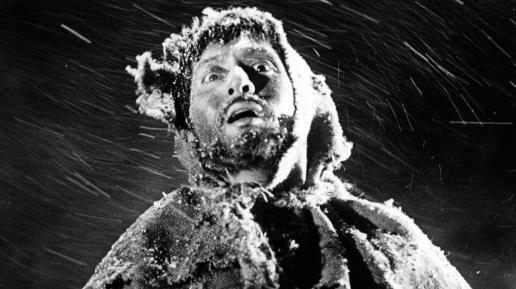
3 minute read
2. The Human Condition III: A Soldier's Prayer (Masaki Kobayashi,
1961)
Kobayashi's Kwaidan has already been mentioned. Between 1961 and 1962, he was at the peak of his powers releasing this and Harakiri. The Human Condition trilogy is heralded as among the best cinema has to offer. Admittedly, I did find them occasionally bloated with their 3 hour plus lengths. More so than The Godfather or Lord of the Rings films. They don't bother me at all. I'd forgive the first two parts of the Human Condition trilogy because in the moments they do land, it is colossal in impact. In the first, our protagonist, Kaji, is a pacifist condemned to the role of maintaining order in a POW camp. It takes its time getting there but when he's putting his life on the line for the Chinese and recognising the cruelty being committed by his country, it is shocking stuff. Having infuriated his government, he is then forced to train with the troops and fight in the war in part II. If this part seems familiar, it is because Kubrick definitely stole aspects for Full Metal Jacket. Yep, there's even a Private Pyle. Part III was by far the superior because I was hooked for the full run time. Hooked on this concept of these guys risking their lives to get back to a home that by the second becomes less and less possible of even imagining. All of which the character accepts as some form of punishment for how his comfortable marriage in part I was based on the suffering of the Chinese. With all the women selling their bodies for food on the road, he does try to remain faithful, unlike the guy in Ugetsu. However, he continues to question the purpose and whether his wife could be one of these women. Everything is telling this man that there's no point continuing his journey and yet he does it anyway out of blind faith or refusal to give in to the greater fear that there is nothing left to go back to. Out of desire to return home, he commits acts he doesn't approve of, for what? This is the one where it hits the hardest of how much this guy has had a real transformation over the series from pacifist towards becoming this kind of Michael Corleone monster shaped by the horrors of war. Seeing him plod on in the rain knowing full well he's not going anywhere pleasant and still putting one foot in front of the other, not even believing in his mission any more but proceeding anyway cause what else is there? All comes full circle and this descends in to an unforgettable existential nightmare. Eventually, our protagonist like his mission, drifts in to the night, leaving only a shell behind to take his place amongst the trees and be the sole witness of his fate.
Advertisement
1. Andrei Rublev (Andrei Tarkovsky, 1966)
Here we have it, my favourite first watch of 2022. Potentially Tarkovsky's best and it could well crack my top 10 of all time. Technically this is a biopic or at least supposed to be. However, Tarkovsky often leaves the titular 15th century painter behind to present a more general view of the artist as a historic icon akin to Socrates or Aristotle. At times not only does he depart from the character but he also appears to deviate from the time period too providing a sort of meta commentary on himself as an artist working within a communist regime. Naturally, this led to heavy censorship from the Soviet Union. Christianity is also explored in tangent with national identity. So expect these long winded depressing passages, such as, "Through our sins, evil has assumed human form. Encroaching evil means encroaching humanity. God will forgive you. Don't forgive yourself. Live between divine forgiveness and your own torment". Yeah, that one knocked me for six. As well as Tarkovsky, the person who helped pen the script is the director of Tango and Cash. Batter out? Andrei Konchalovsky wrote two of the best arthouse movies (Rublev and Ivan's Childhood) and two of the best 80s action movies (Tango and Cash and Runaway Train). That automatically makes him my hero. In Rublev, we get this entire section where everything stops as the characters build a bell. Perhaps, I'm alone in this but I wholeheartedly support movies where everything comes to a standstill for a good half hour or hour of the run time so the characters can engage in a really masculine activity like building something. I'm a stickler for tight economy but there's no limits for sections dedicated to building activities. There are no limits for how long these can go on for in my book. This may well be the real reason I adore There Will Be Blood and Fitzcarraldo so much. Nothing like pausing the plot and watching some mad contraption come together. The bigger the better. That would be my message to filmmakers today. Build something fucking abnormally humongous midway through the movie. Why? Why not.






